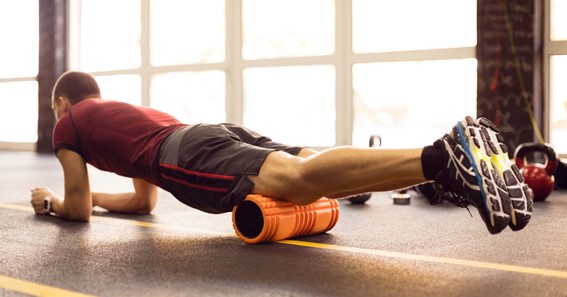You made a promise to yourself to love your body and treat it with exercise, a form of self-love. You hit the gym with the motivation to love yourself every day, but wait, the next day of that heavy exercise gives you a bundle of pain. Muscle soreness can happen due to micro-tearing in the muscle fiber. Inflammation starts taking over at the site of injury in the muscle. The accumulation of fluid in these muscles tends to load extra pressure on the damaged tissues. The pain shows up after exercising and is also known as delayed-onset muscle soreness. This usually happens when you try to stretch your muscles beyond their scope. If the exercise is new to your body, your muscles are more likely to get sore.
Ways To Ease Your Muscle Soreness
Muscle soreness is good until it doesn’t leave you sore every time you get up from a workout session. Erik Pham, a senior editor at a health magazine, calls muscles soreness a normal thing that comes with exercising. Here are some ways you can relieve your muscles soreness.
Hydrate
Hydration can help you relieve muscle soreness. More than half of the reactions happening inside the body are supported by water. Water helps maintain the body’s normal temperature and aids in the transportation of nutrients. Hydration helps in the fast recovery of the muscle fibers. It also serves other purposes like flushing out toxins and relieving inflammation. Check your dehydration level by inspecting urine color if it’s dark yellow, you are dehydrated.
click here – Factors to Consider When Choosing Your Next Game
Warm-Up
Don’t give your muscles a sudden jerk of exercise, do some stretching instead. This gives your muscles time to adjust for heavy exercising sessions as it aids in improving blood circulation. Improved blood circulation helps deliver the nutrients and oxygen that can help repair damaged muscles. Jog, walk, jump, or bike around to help your muscles get ready for the workout. Avoid doing intense work using the same set of muscles for consecutive days. This will help your muscles relax and give you some time to repair the damaged tissues.
Eat Healthy After A Workout
Get some healthy food after an intense workout session. Let your muscles start the healing process by getting 30-40 grams of protein and carbs daily. Protein supplements amino acid formation that is involved in the muscle repairing process. Low levels of nutrients can slow down the healing process. Carbohydrates are again a vital ingredient of the diet as it helps restock the energy reserves in the body. Make sure your body isn’t deficient in crucial nutrients. Make green plants an important part of your diet because it helps amplify the antioxidant potential in the blood. Greens powder introduced on Healthcanal.com/health/athletic-greens-review is one of the most convenient and effective ways to get necessary nutrients.
Sleep
Sleeping is healing. It may not show immediate effect, but it assists the process of muscle repair. Synthesis of protein increases when you enter into the non-rapid eye movement phase of sleep. This aids in the synthesis of amino acids, thereby healing the muscles. Try to get quality sleep at night and let your muscles rest for at least 7 hours.
Workout Properly
If you apply the wrong techniques to do an exercise, it may hurt your muscles. If you are performing exercises under an instructor, take his help. Learn about the right ways to perform an exercise. This can save your muscles from damage or strain. Don’t go for exercises that are beyond your body’s flexibility. Start slow and stretch your muscles gradually to reach a certain level of muscle flexibility before executing an intense workout method.
Apply Heat
Applying heat at the site of injury can reduce inflammation and soreness. Heat stimulates blood flow in that area and helps ease tightness in the muscles. If you have a hot bag or a warm piece of cloth, you can apply it to the affected area. Don’t try to over-apply it at the same point for long; it may cause burns. While using a hot pack, wrap it with a towel, and then apply it to the injured area. It will also release the locked joints. You can also try massaging the area to release muscle tension and increase circulation. Try performing acupressure on the impacted muscles.
click here – Effective Digital Marketing Tactics to Leverage in 2022
Other Ways To Try
Other ways to relieve the pain:
- Rest and recover first. Take alternate daybreak after a heavy workout session.
- Use ice packs for swelling in the muscles.
- Use over-the-counter medicine if the pain is unbearable.
- Do gentle stretch every day.
- Avoid heavy exercising sessions if you have muscle soreness for the next few days.
The Bottom Line
When you are new to the workout world, muscle soreness can fall for you easily. Exercise demands a complete stretch of muscles. When you stretch those resting muscles, it can stretch the fiber tissues and cause tears. It is essential to take note of what exercises you are going to start with and how you will expand the stretchability of your muscles. Start slow and give your muscles time to adjust. When your muscles adapt to stretch moves, it will cause less soreness than usual. If the soreness doesn’t leave you, seek help from a doctor or go for the counter the medicines to help ease the pain.

